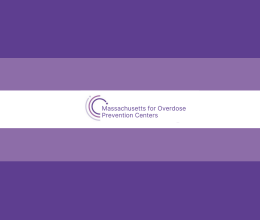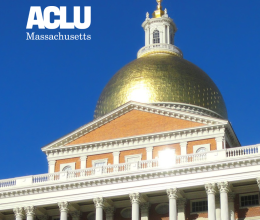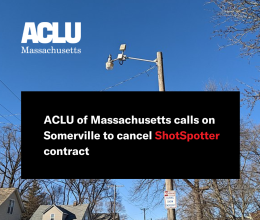
Led by the Coalition for Effective Public Safety, almost 70 Massachusetts organizations have issued an urgent call for immediate and substantial changes in policies, practices, and procedures for the state’s criminal justice system.
In a 10-page letter, the groups call on Governor Charlie Baker, Supreme Judicial Court Chief Justice Ralph Gants, House Speaker Robert DeLeo, and Senate President Stanley Rosenberg to address the clear and profound disparate treatment of people of color in our justice system. They demand that state leaders make good on promises to improve fairness and outcomes for those in the system, reduce prison and jail populations, decrease recidivism, and cut prison costs. The groups also urge the Governor and his executive branch administrators to address long-standing failings of the Department of Correction and the Parole Board.
“The Massachusetts criminal justice system has fallen behind much of the country in its failure to use evidence-based best practices, resulting in systems that undermine public safety, waste hundreds of millions of dollars, and discriminate against the poor and communities of color,” said Rahsaan Hall, Director of the Racial Justice Program at the ACLU of Massachusetts. Hall said that data collected by the Council of State Governments (CSG)—“demonstrates a compelling need for change in charging, bail and sentencing practices, and in corrections and parole.”
In a July 2015 letter to the CSG, Baker, Gants, DeLeo and Rosenberg acknowledged that Massachusetts needed “to use a data-driven, cost-effective approach to continue to improve our criminal justice outcomes.” They explained that the data gathered by CSG would be used to “better understand how we can further reduce our prison and jail populations” and “enable successful re-entry.”
CSG, a non-profit organization that has provided this service to many other states, has spent the past 16 months on an exhaustive data analysis and interviews with stakeholders. The data has been published and reviewed by Massachusetts leaders and stakeholders.
"Our leaders need to address the problems made clear in CSG’s data,” said Hall. “Right now, any hope that the residents of this state will benefit from CSG’s efforts are in jeopardy.” The legislative and policy recommendations due to be presented by CSG in January 2017 will be limited by the topics on which our leaders direct them to address—but to the more than 60 groups who signed the letter to the Governor, the Chief Justice, the Speaker, and the Senate President, it appears that CSG has not been asked to bring forward meaningful recommendations regarding the most critical aspects of charging, bail, sentencing and the processing of cases, the management of corrections and parole, and the elimination of racial and ethnic disparities.
To that end, the groups’ letter spotlights that without meaningful and honest action by the Governor and the Legislature, CSG’s visit to Massachusetts will be meaningless for voters. The letter urges the government leaders to ask CSG to present legislative proposals and executive policy recommendations for key aspects of the criminal justice system.
As Chief Justice Gants has been urging for several years, the letter insists that top Massachusetts leaders address the fact that the state imprisons African-American defendants at eight times the rate of white defendants. Hispanic defendants are imprisoned at almost five times the rate of whites. “As any student of criminology knows, this disproportionality cannot be justified as serving any legitimate public safety purpose. In fact, it undermines public safety and makes it extremely difficult for communities of color to climb out of poverty,” said Hall.
According to Naoka Carey, the Executive Director of Citizens for Juvenile Justice, “The juvenile justice system in Massachusetts has made addressing this problem its top priority, and so should the adult systems.”
The more than 60 organizations call for swift legislative action in response to CSG’s data and to fulfill CSG recommendations, including:
- the elimination of mandatory minimums for drug cases;
- the availability and utilization of diversion programs for both juveniles and adults;
- the implementation of compassionate release for ill and dying prisoners;
- and the implementation of presumptive parole.
Carefully crafted presumptive parole legislation, something CSG has done in other states, releases prisoners on parole to serve the rest of their sentence in the community after they have served their minimum sentence in prison. “Presumptive parole supports and incentivizes prisoners’ successful reentry and saves money. A year in state prison costs approximately $53,000, while a year on parole is approximately $5,000. That savings is merely the tip of the iceberg, because when parole supervision is done well, recidivism rates plummet, improving public safety and saving millions more dollars in policing, courts, and re-incarceration costs,” said Leslie Walker, Executive Director of Prisoner’s Legal Services.
Governor Baker has it in his power to take immediate steps to improve public safety and save many millions of tax dollars. He can, by executive action, reform the way prisoners are classified in the DOC system and released from custody. He can also direct the Parole Board to improve poor parole rates in Massachusetts and our poorer parole supervision practices. Finally, the Governor can work to restructure the DOC budget so that resources are realigned to provide funds for education, counseling, mental health services, programming, and vocational training, and he can recommend that we immediately stop the use of lengthy stays in solitary confinement as a punishment.
“It is time for Massachusetts’ government leaders to engage in the wise and courageous leadership they have shown on numerous other issues. Our criminal justice system must change, and unless this call is heeded, the promise for meaningful reform set forth in the August 2015 Invitational letter to CSG will remain unfulfilled. Massachusetts voters deserve a system that spends our resources on needed services in our communities, not warehousing people in ineffective prisons without access to programs. That's why so many of us are demanding action,” said Carey.







